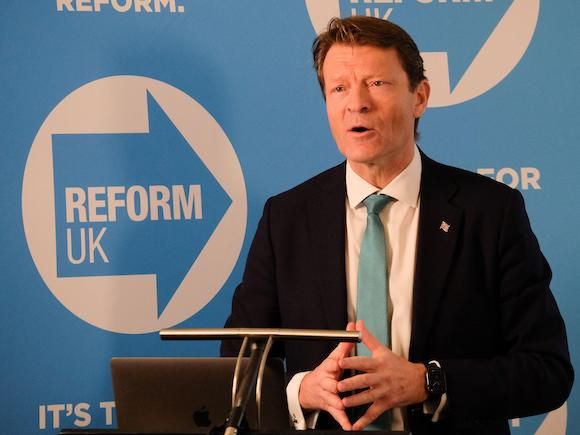In a significant shift towards greater member involvement, Reform UK’s conference in Birmingham has voted to adopt a new constitution, granting party members enhanced control over policies and leadership. The resolution was approved overwhelmingly by a show of hands, marking a pivotal moment for the party as it seeks to redefine its structure and engagement with its base.
Reform UK leader Nigel Farage, who has long been a prominent figure in British politics, ceremoniously signed the new constitution on stage following the vote. In his address to party members, Farage declared, “We have come of age and we are a properly constituted party,” emphasizing the importance of this development for the organization’s future.
Having garnered 14% of the vote in July’s general election, Reform UK currently holds a foothold in Parliament with five Members of Parliament, including Farage himself. Originally established as a private limited company, with Farage possessing the majority of shares, the party has undergone a transformative reorganization within just two months of its first MPs being elected.
The newly adopted constitution signifies a major overhaul, with Farage stating that he is “giving ownership of the party and the big decisions over to the members.” This marks the first time at a Reform UK conference that members have actively voted on a policy motion regarding the constitution, which outlines the party’s rules and the responsibilities of its leadership.
In his conference speech, Farage underscored the necessity for the party to adopt a more “professional” approach, indicating a desire to enhance its operational framework and member participation. The new constitution stipulates that the party will transition to a not-for-profit organization, governed by the newly established rulebook, thereby eliminating shareholders and reinforcing a focus on collective member governance.
Zia Yusuf, the party’s chairman, presented the new constitution for a vote during the conference, highlighting its potential to reshape the dynamics of leadership within the party. The overwhelmingly positive reception from the attendees, with only a handful voting against the measure, reflects a strong consensus on the proposed changes.
One of the most notable features of the new constitution is the introduction of a mechanism that allows members to initiate a no-confidence vote against the party leader, including Farage himself. This can be triggered if 50% of all members submit a written request to the chairman. Additionally, Reform MPs have the power to call for a no-confidence vote, provided that 50 of them or at least 50% of the total MPs write to the chairman, although this requirement is contingent upon having more than 100 MPs in Parliament.
The adoption of this new governance framework signals a strategic move by Reform UK to engage its members more directly in the decision-making process, fostering a sense of ownership and accountability within the party. As Reform UK looks to solidify its position in the political landscape, the changes may play a crucial role in shaping its future direction and strengthening its appeal to a broader electorate.
With this new chapter, Reform UK aims not only to enhance its internal structure but also to reinforce its commitment to representing the interests of its members and constituents alike. The party’s evolution reflects a broader trend in contemporary politics, where grassroots engagement and member participation are increasingly seen as vital to the health and sustainability of political organizations.



